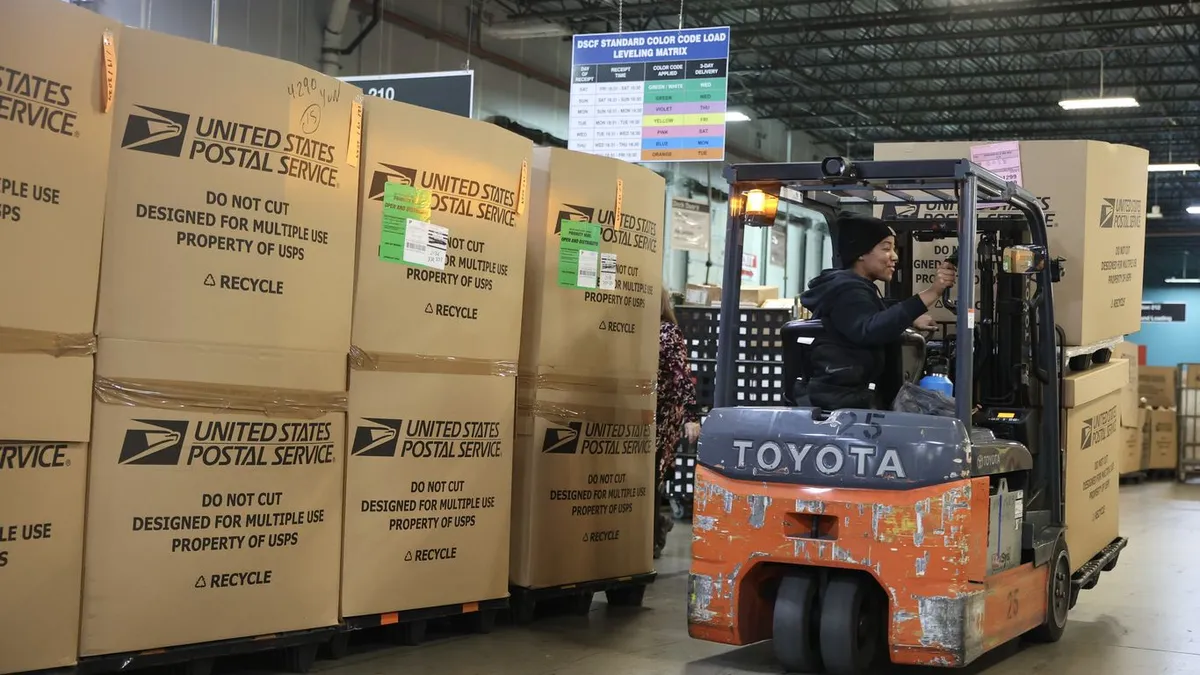
As of early Friday morning, tariffs on small packages from around the globe have officially taken effect, marking the end of the de minimis exemption for postal shipments valued at less than $800 sent to the U.S. This significant change is poised to have far-reaching implications for international trade, e-commerce, and consumers alike.
The implementation of these new tariffs has led to numerous national postal services halting their shipping operations to the U.S. Many of these services have cited the U.S. government's new trade regime as too complex and difficult to navigate. The consequences of this shift could soon lead to American consumers facing billions of dollars in new fees for previously affordable packages.
The term de minimis is derived from Latin, meaning a thing of little importance. Historically, this exemption allowed low-value shipments from other countries to the U.S. to bypass tariffs, despite any other levies that might apply. This exemption played a crucial role in the growth of e-commerce, particularly for low-cost merchants, especially those based in China.
Earlier this year, the Trump administration ended the de minimis exemption specifically for packages coming from China, which accounted for a staggering 60% of approximately 1.3 billion such parcels shipped last year. This exemption was vital for the success of budget-friendly Chinese retailers like Shein and Temu. In July, an executive order was issued to extend this termination to the rest of the world, aiming to close what the administration termed a loophole. They project that eliminating this exemption could generate about $10 billion in tariff revenue annually while also combating the influx of narcotics, counterfeit goods, and weapons.
In response to these changes, at least 29 European carriers have either suspended their services or issued warnings regarding shipments to the U.S., according to the trade group PostEurop. Major Asian and Latin American carriers, including Japan Post and Correos de Mexico, have adopted similar measures. The duration of these suspensions remains uncertain, and the U.S. administration has accused these national carriers of failing to meet security standards held by larger international shippers.
The ramifications of these new trade rules are just beginning to unfold. American consumers who previously enjoyed easy access to low-cost goods—from yarn to artisanal cigars—are now finding it increasingly difficult to receive their regular small-dollar shipments. For instance, a Canadian company specializing in retro video game hardware recently expressed regret on social media for having to cut off U.S. customers due to these changes.
In light of these developments, advocacy groups like Americans for Responsible Growth have labeled the termination of the exemption as Trump's online shopping tax. Maryland state comptroller Brooke Lierman emphasized during a press call that the end of the de minimis exemption will significantly reduce affordability, harm small businesses, and undermine the stability that families and local enterprises strive to maintain.
A senior official from the administration indicated that foreign carriers would need to make independent business decisions regarding compliance with the new trade rules. Another official remarked that the carriers suspending their services account for a minor percentage of total shipments to the U.S., asserting that there would be no negotiations or exemptions to these new regulations.
As the trade war continues, the landscape is shifting rather than concluding. The new tariffs and the resulting international responses signal a transformative period in U.S. trade policy that will likely affect consumers, businesses, and international relations for the foreseeable future.